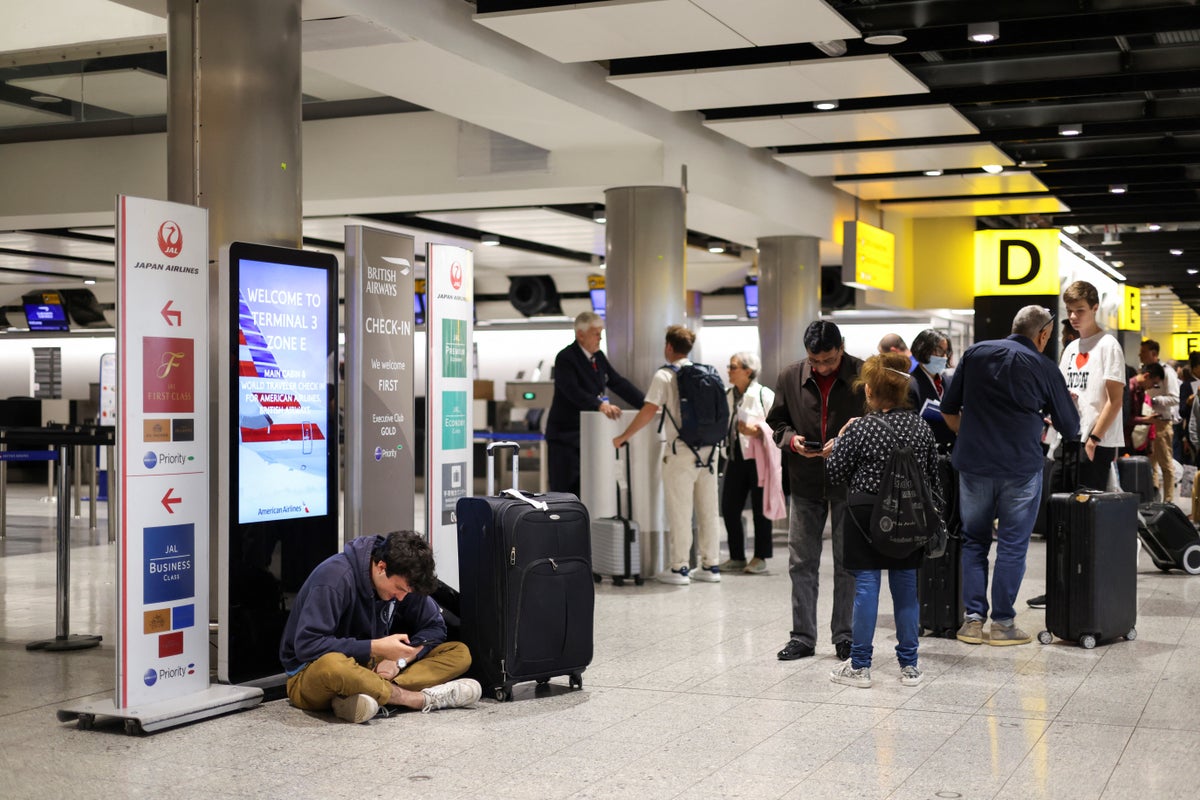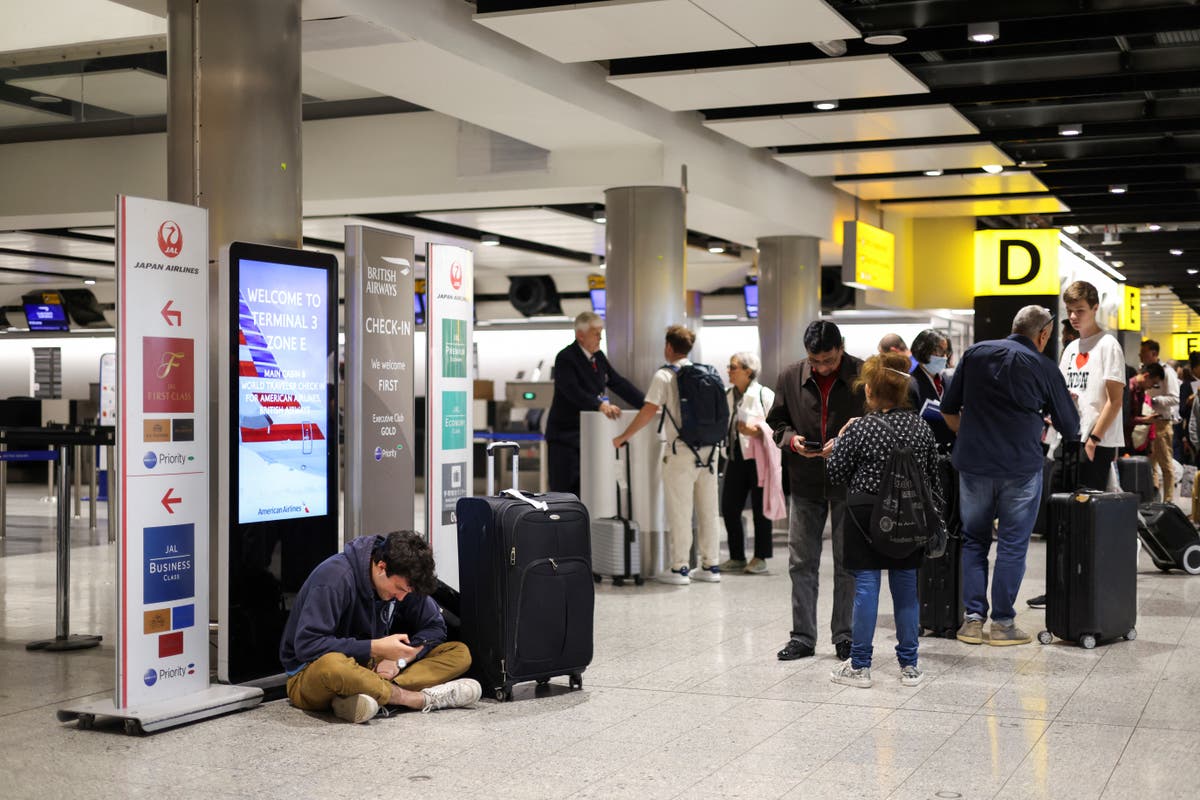
Thousands of passengers booked to travel to or from the UK have had their flights cancelled or delayed after the air-traffic control system was hit by a technical issue.
The National Air Traffic Services (NATS), the country’s leading provider of air traffic control services, said it had applied traffic flow restrictions on Monday to maintain safety.
The group announced later that the issue had been “identified and remedied”. But passengers are still facing travel chaos, with more than 500 flights already cancelled and many more delayed.
Here, The Independent’s travel expert Simon Calder explains what you can do if you are caught up in the chaos.
What are the rules that guide my rights?
For flights from the UK and EU airports (as well as those in the wider EEA), European air passengers’ rights rules prevail.
These were introduced in 2006 and are known as EC261. They were devised to require airlines to do the right thing for their passengers. They specify the care and compensation you can expect when you are denied boarding despite showing up on time, or when your plane is delayed or cancelled.
But from locations outside Europe, the obligations are more complex – with passengers on flights operated by EU airlines treated differently depending on their final destination.
My flight from a UK or EU airport is cancelled. What can I expect?
Whatever the cause of a cancellation, and regardless of the amount of notice that is given, you can insist upon replacement transport: the airline must get you to your destination as soon as possible if that is what you want. The UK Civil Aviation Authority says that means that, if a flight is available on the original day of travel, the passenger must be booked on it – even if it is on a rival carrier.
You are entitled to “re-routing, under comparable transport conditions, to [your] final destination at the earliest opportunity”.
The term “re-routing” is unhelpful, since it implies finding a different route to the destination. On a link such as Manchester-Dublin or Barcelona-Gatwick, with around a dozen flights a day on multiple airlines, there may be no need to change the route.
If you are flown to a different arrival airport, the airline must also meet reasonable onward travel costs. If you are flown to Luton rather than Gatwick, you could claim the £38 train fare but not a £150 taxi (unless you are in a party of four).
On occasion, a train (eg Eurostar from Amsterdam, Brussels or Paris to London) or even a rental car may be more appropriate.
You have two further options. The first is an alternative flight at a time to suit you in the future – though the cancelling airline can reasonably require you to travel on one of its services. The other is a full refund, including any return segment if it is on the same ticket.
The airline says it can’t deliver an alternative flight today – what happens next?
If the cancelling carrier does not carry out its duty, obliging you to make your own arrangements, then you can expect reasonable costs to be refunded.
That means booking the cheapest alternative ticket possible, staying in a budget hotel if there is one, etc. You must keep all your receipts, of course. If the alternative travel is expensive (eg only business class is available) you will need to be able to show evidence of that, perhaps with screenshots.
My flight from a UK/EU airport is heavily delayed. What are my entitlements?
Regardless of the cause, passengers are entitled to meals and, if necessary, accommodation until the flight departs.
The trigger point for care depends on the length of the journey.
- Short flights (up to 1,500km): two hours
- Mid-haul journeys (1,500 to 3,500km): three hours
- Longer trips, four hours
My flight from outside Europe to the UK is heavily delayed. What are my entitlements?
If you are booked on a UK or EU airline you have full rights as above. On any other airline, you have none.
Do I get cash compensation?
No. The air-traffic control failure is regarded as an “extraordinary circumstance”.

